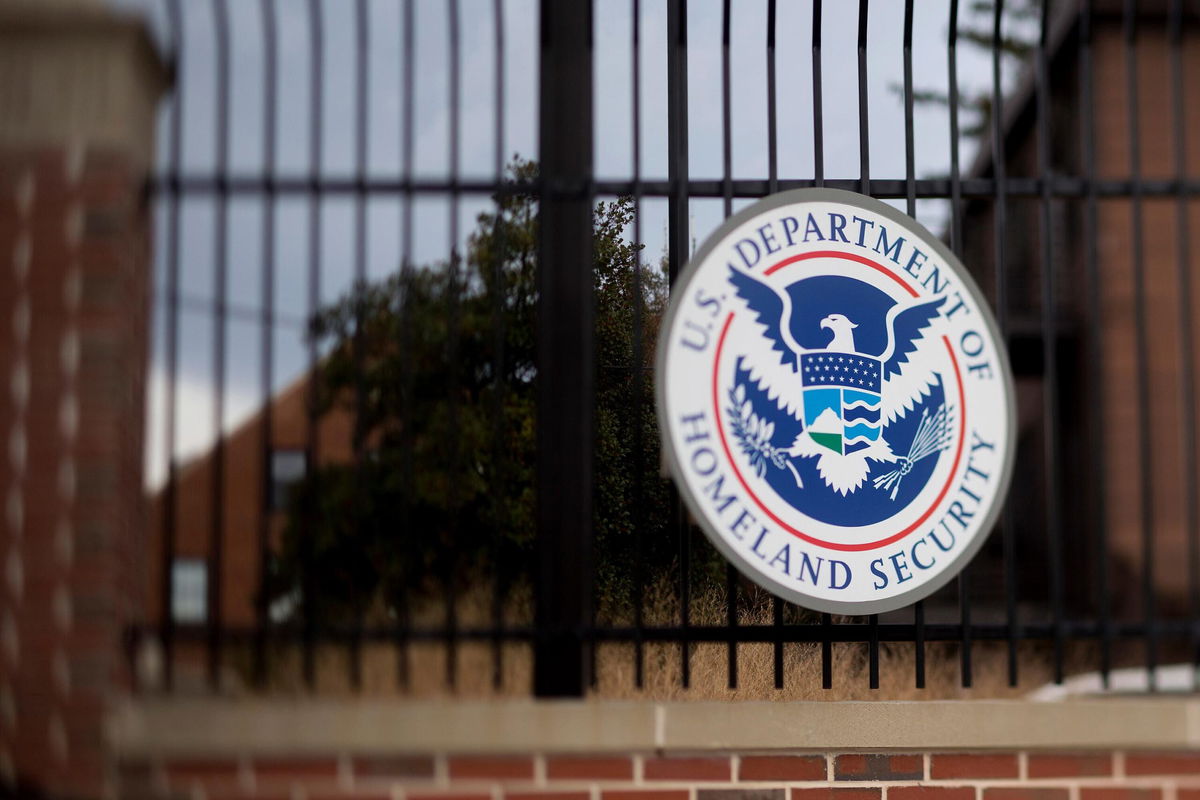DHS updates terrorism bulletin in the wake of recent violent events and Russia-Ukraine tensions

By Geneva Sands, CNN
The spread of conspiracy theories and disinformation is fueling the “heightened threat” environment in the United States, warns the latest national bulletin issued Monday by the Department of Homeland Security.
The terrorism bulletin is in part a response to recent events, including a hostage attack on a synagogue in Colleyville, Texas, and threats directed at historically black colleges and universities, as well as a shift in Russian influence campaigns related to Ukraine.
This bulletin “outlines the key factors that have increased the volatility, unpredictability, and complexity of the current threat environment, and highlights resources for individuals and communities to stay safe,” Homeland Security Secretary Alejandro Mayorkas said in a statement.
For example, supporters of foreign terrorist organizations have encouraged copycat attacks following the attack last month on the synagogue in Texas, the bulletin says.
And ISIS or its affiliates “may issue public calls for retaliation due to the strike that recently killed ISIS leader Abu Ibrahim al-Hashimi al-Qurayshi,” according to the bulletin.
The National Terrorism Advisory System bulletin is the principal way DHS informs the public about any changes to the terrorism landscape in the US. The last one, issued in November, was set to expire this week.
Threats against the United States are increasingly unpredictable and complex amid a host of conspiracy theories, foreign interference and calls for violence, the new DHS bulletin says.
Although Russia is not named in the bulletin, a senior DHS official said it is “one of those foreign hostile powers that has engaged in a sustained level of information influence operations targeting the US.”
Those efforts have in part been aimed at undermining credibility in the US government, the official added.
Russia has promoted content through various means to US populations, particularly focusing on government response to Covid-19 and issues of race and immigration, as well as the 2020 election, according to the official.
However, in recent months Russia has included messaging about Ukraine, according to a law enforcement source and a DHS memo that was shared with state and local officials in late January.
Since September, Russia has also promoted narratives pointing to the US as the aggressor that is exacerbating the situation between Russia and Ukraine, according to the source.
“This campaign constitutes the most significant Kremlin-driven messaging campaign in the last year and we expect this to continue to increase as the crisis over Ukraine worsens,” reads the memo, obtained by CNN.
What stands out in Monday’s bulletin, according to Thomas Warrick, director of the Atlantic Council’s Future of DHS Project, is the emphasis on false and misleading narratives and conspiracy theories, originating with or amplified by foreign and domestic threat actors.
“Most notable in recent months have been Russian disinformation efforts relating to Ukraine,” he said, adding that DHS and US intelligence officials have previously pointed to state actors Russia, China and Iran, as well as terrorist groups, for their efforts to mislead and confuse the US public.
“What is most important, as the DHS NTAS Bulletin advises, is for the American people to recognize that hostile nation-states and terrorist groups alike are trying to mislead the American people on a wide range of issues,” he said.
Last month, a 44-year-old British national held four people hostage at the Congregation Beth Israel synagogue in Colleyville, Texas. All the hostages escaped and the attacker was killed after an hours-long standoff that prompted federal government outreach to Jewish communities across the US.
The synagogue attack highlights the continuing threat of violence based on racial or religious motivations, as well as threats against faith-based organizations, the bulletin says.
During and after Colleyville, DHS began seeing content posted online pointing to the attack “as an example of the types of activities that lone offenders or others should be taking … in support of ISIS or al Qaeda,” the senior DHS official said.
There was also an increase in calls for attacks among those who are supportive of Aafia Siddiqui, an al Qaeda operative who is in custody in Texas, and the hostage taker referenced, according to the official.
Investigators believe the hostage taker may have been motivated by a desire to release Siddiqui, who is serving an 86-year sentence, CNN previously reported.
“Ironically,” the official said, there have also been calls on White supremacist platforms “noting the events in Colleyville.”
The primary terrorism threat to the US continues to be from lone offenders or small groups who are motivated by a range of foreign and domestic grievances “often cultivated through the consumption of certain online content,” the bulletin says.
Both the Colleyville incident and the threats against universities and colleges are examples of continued calls for violence directed at US critical infrastructure, mass gatherings, faith-based institutions, institutions of higher education, racial and religious minorities, government facilities and personnel, and perceived ideological opponents, according to the bulletin.
To combat the threats, DHS has been sharing information and intelligence with state and local officials, as well as impacted communities.
While we are “very concerned about a threat environment,” the DHS official said, “I feel that we are much better prepared to deal with that threat as it is evolving than we were, say, a year ago.”
Mayorkas has called for a “significant enhancement” in the funding allocated for the Nonprofit Security Grant Program, which provides money to organizations to invest in physical security enhancements, for example, another DHS official said.
The synagogue in Colleyville was a recipient of one of these grants.
This story has been updated with further details.
The-CNN-Wire
™ & © 2022 Cable News Network, Inc., a WarnerMedia Company. All rights reserved.
CNN’s Sean Lyngaas contributed to this report.


